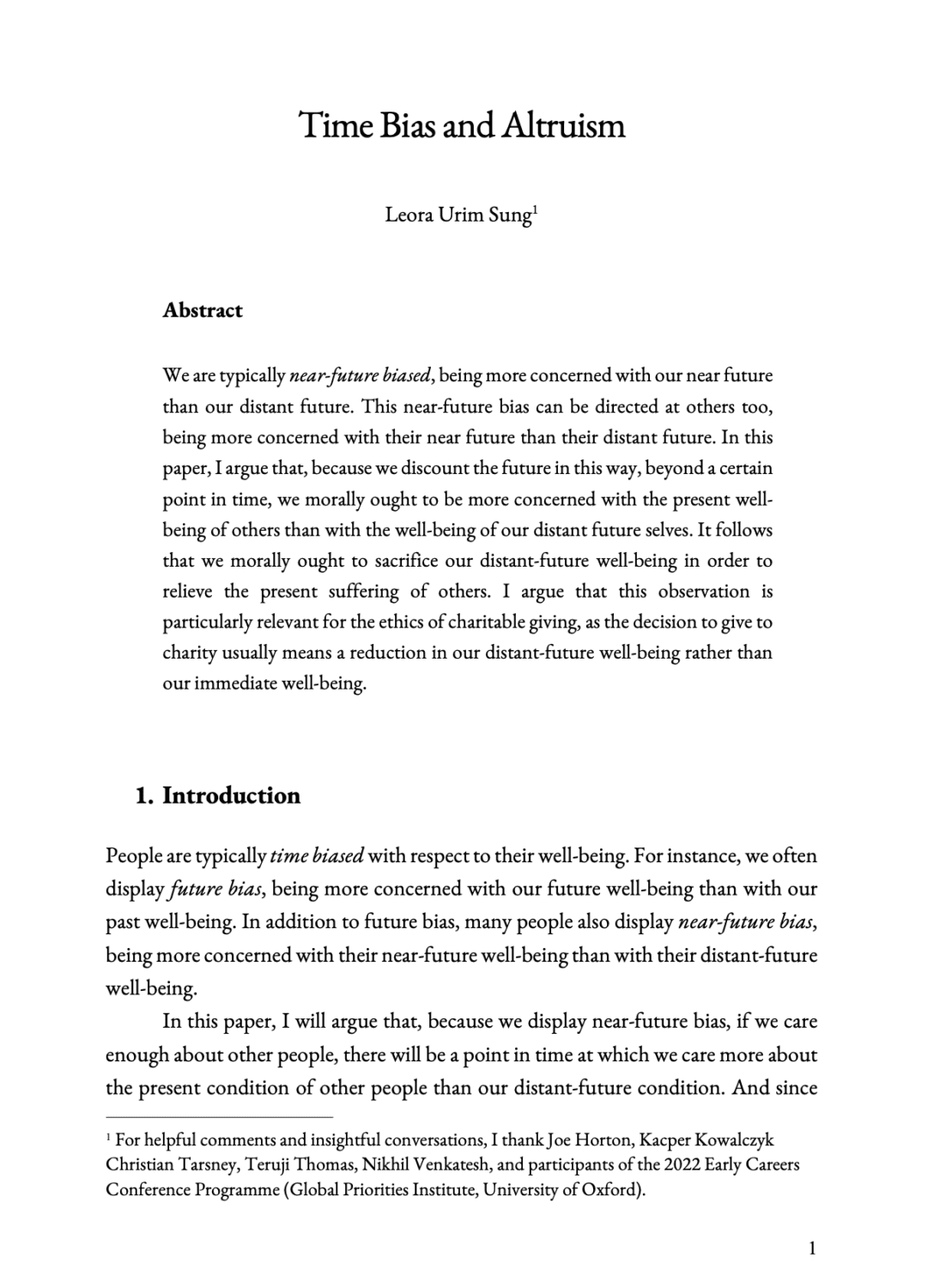Time Bias and Altruism
Leora Urim Sung (University College London)
GPI Working Paper No. 17-2023, winner of the ECCP 2022 Paper Prize
We are typically near-future biased, being more concerned with our near future than our distant future. This near-future bias can be directed at others too, being more concerned with their near future than their distant future. In this paper, I argue that, because we discount the future in this way, beyond a certain point in time, we morally ought to be more concerned with the present well- being of others than with the well-being of our distant future selves. It follows that we morally ought to sacrifice our distant-future well-being in order to relieve the present suffering of others. I argue that this observation is particularly relevant for the ethics of charitable giving, as the decision to give to charity usually means a reduction in our distant-future well-being rather than our immediate well-being.
Other working papers
Prediction: The long and the short of it – Antony Millner (University of California, Santa Barbara) and Daniel Heyen (ETH Zurich)
Commentators often lament forecasters’ inability to provide precise predictions of the long-run behaviour of complex economic and physical systems. Yet their concerns often conflate the presence of substantial long-run uncertainty with the need for long-run predictability; short-run predictions can partially substitute for long-run predictions if decision-makers can adjust their activities over time. …
‘The only ethical argument for positive 𝛿’? – Andreas Mogensen (Global Priorities Institute, Oxford University)
I consider whether a positive rate of pure intergenerational time preference is justifiable in terms of agent-relative moral reasons relating to partiality between generations, an idea I call discounting for kinship. I respond to Parfit’s objections to discounting for kinship, but then highlight a number of apparent limitations of this…
Numbers Tell, Words Sell – Michael Thaler (University College London), Mattie Toma (University of Warwick) and Victor Yaneng Wang (Massachusetts Institute of Technology)
When communicating numeric estimates with policymakers, journalists, or the general public, experts must choose between using numbers or natural language. We run two experiments to study whether experts strategically use language to communicate numeric estimates in order to persuade receivers. In Study 1, senders communicate probabilities of abstract events to receivers on Prolific, and in Study 2 academic researchers communicate the effect sizes in research papers to government policymakers. When…

